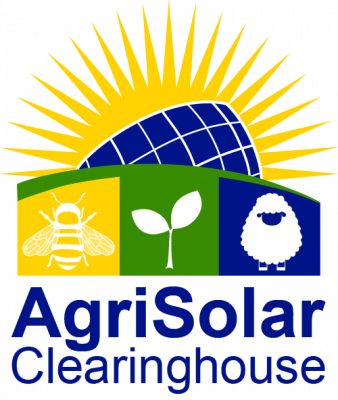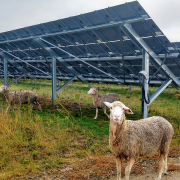New York Agrisolar Project Backed by Cornell and USDA
A new project funded by Cornell University and the U.S. Department of Agriculture (USDA) will explore the economic benefits of grazing sheep under industrial-scale solar arrays in New York, according to a report by The River. The three-year, $500,000 project will focus on the economic opportunities for a farmer-owned business cooperative that grazes sheep under industrial-scale solar panels. The idea for the project came to life in 2019, when Caleb Scott, a New York farmer, and Todd Schmidt, a professor at Cornell University, discussed the benefits and possibilities of organizing a co-op between solar developers and sheep farmers.
The group of farm and energy advocates developing this project are working to prove the power of agrivoltaics by getting more sheep grazing under solar panels in the Northwest. Agrivoltaics is a growing field combining farm production and renewable energy, benefitting both of these industries, as well as local ecosystems and communities.
“There’s very aggressive renewable energy goals by the state, of which they’re trying to do a lot with solar. This is a real opportunity for growth in a relatively small agricultural production sector in the state,” said Schmidt.
According to the report, New York’s 2019 climate law, the Climate Leadership and Community Protection Act, set an ambitious energy goal of a zero-emissions electrical grid by the year 2040.
For more information on the project, click here.


